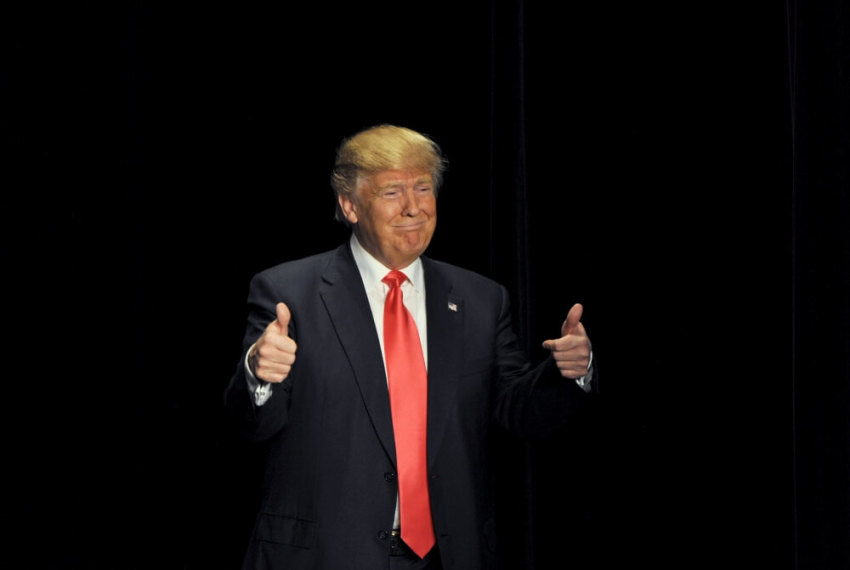Donald Trump Most Unpopular Candidate in 20 Years, Pollster Says

Three out of five Americans hold an unfavorable view of Republican presidential frontrunner Donald Trump, making him the most unpopular presidential candidate for at least last two decades.
According to Gallup polling data compiled from Jan. 14 to Jan. 27, an even 60 percent of Americans hold an unfavorable view of the billionaire real estate mogul as a presidential candidate, which means he is more disliked than Democratic frontrunner Hillary Clinton.
As the Iowa Caucus will take place Monday night, Trump is currently leading in most national and Iowa Republican nomination polls. Despite Trump's success in the polls, Gallup Editor-in-Chief Frank Newport says that the Gallup data suggests that Trump is really the most unpopular candidate in either major party.
"Most political and media commentators have at this point installed Donald Trump as the GOP front-runner on the eve of the first actual voting set to begin on Monday in Iowa," Newport wrote in an opinion piece published on the Gallup website.
"But this narrative tends to obscure the fact that Trump is the most unpopular candidate of either party when the entire U.S. population is taken into account — and that he has a higher unfavorable rating than any nominated candidate from either of the two major parties going back to the 1992 election when we began to track favorability using the current format."
Clinton is the second most unpopular candidate, as 52 percent of respondents said they hold an unfavorable view of the former Secretary of State. Former Florida Gov. Jeb Bush was the third most unpopular with 45 percent saying they find him unfavorable.
New Jersey Gov. Chris Christie was the fourth most unpopular (38 percent), followed by Texas Sen. Ted Cruz (37 percent), then Florida Sen. Marco Rubio (33 percent). Thirty-one percent of respondents hold an unfavorable view of Vermont Democratic Sen. Bernie Sanders, while 30 percent find retired Neurosurgeon Ben Carson unfavorable.
"Trump's 60% is clearly well above all of these. Putting his favorable and unfavorable ratings together yields a net favorable of -27 for Trump, far above the -10 for Clinton and for Bush," Newport explained. "The bottom line is that Trump now has a higher unfavorable rating than any candidate at any time during all of these previous election cycles, and that conclusion takes into account the fact that unfavorable ratings tend to rise in the heat of a general election campaign as the barbs, negative ads and heightened partisanship are taken to their highest levels."
Newport added that the only Republican or Democratic candidate to come close to Trump's 60 percent unfavorable rating during an election year was former Republican president George H.W. Bush. As an incumbent, Bush reached a 57 percent unfavorability rating in October 1992, about a month before he lost the general election to Democrat Bill Clinton.
Newport discloses that prominent independent and third-party candidate Ross Perot had his unfavorable rating reach above 60 percent at various times during both his 1992 and 1996 presidential bids.
Although Gallup finds that Trump is the most unfavorable candidate in the eyes of the entire country, a recently released poll conducted by the Public Religion Research Institute finds that a plurality of GOP voters say they prefer Trump to be the Republican nominee.
As PRRI found in January that 33 percent of GOP voters say they prefer Trump to be the Republican nominee, that is 11 percentage points higher than the amount of voters who preferred Trump to be the nominee in December. Trump's 33 percent is more than double the 14 percent who say they would prefer Cruz or Carson to be the nominee.
The PRRI poll also finds that Trump's popularity with white evangelical Protestants is increasing, as now 53 percent of white evangelical Protestants hold a favorable view of Trump.



























